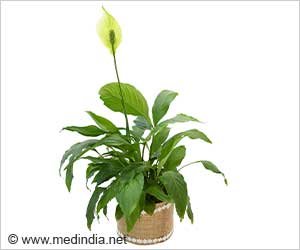Stressful Plants Silently Emit Informative Sounds

Recently, plants were also demonstrated to respond to sounds by changing the expression of specific genes, or by increasing sugar concentration in their nectar. Thus, if plants emit airborne sounds, these sounds can potentially trigger a rapid response in nearby organisms, including both animals and plants.
Even if the emission of the sounds is merely a result of the plant’s physiological condition, nearby organisms that are capable of hearing these sounds could use them for their benefit. Therefore, researchers examined whether plants emit informative airborne sounds, which may serve as potential signals or cues to their environment.
Ultrasonic Sounds from Stressed Plants Reveal Their Physical Condition
To investigate plants’ airborne sound emissions, they constructed a reliable recording system, where each plant is recorded simultaneously by two microphones. First, recorded plants within an acoustic box and developed machine-learning algorithms to classify the recorded sounds.
Advertisement
Then they tested the system in a greenhouse while monitoring the physiological parameters of the recorded plants. The study focused mainly on tomato and tobacco plants, but wheat, corn, cactus, and henbit were also recorded.
Before placing the plants in the acoustic box, they subjected them to various treatments: some plants had not been watered for five days, in some the stem had been cut, and some were untouched.
The recordings indicated that the plants emitted sounds at frequencies of 40-80 kilohertz. Unstressed plants emitted less than one sound per hour, on average, while the stressed plants – both dehydrated and injured – emitted dozens of sounds every hour.
The recordings collected in this way were analyzed by specially developed machine learning (AI) algorithms. The algorithms learned how to distinguish between different plants and different types of sounds, and were ultimately able to identify the plant and determine the type and level of stress from the recordings.
Moreover, the algorithms identified and classified plant sounds even when the plants were placed in a greenhouse with a great deal of background noise. In the greenhouse, researchers monitored plants subjected to a process of dehydration over time and found that the number of sounds they emitted increased up to a certain peak, and then diminished.
These results demonstrate that plant acoustic emissions may play an important role in ecology and evolution, and may have direct implications for plant monitoring in agriculture.
In future studies the researchers will continue to explore the mechanism behind plant sounds; how do moths detect and react to sounds emitted by plants; and do other plants also hear these sounds? And more…
Source: Eurekalert
Source link
#Stressful #Plants #Silently #Emit #Informative #Sounds



